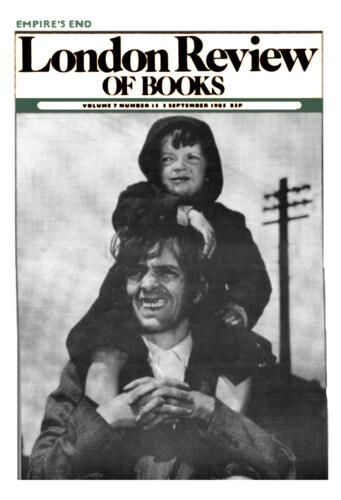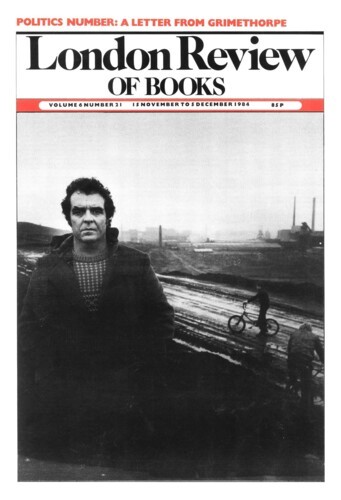Character
Paul Seabright, 5 September 1985
Bernard Williams’s new book is the nearest thing to a systematic and comprehensive discussion of moral philosophy we can hope for from someone who thinks a yearning for systematic and comprehensive discussion is the main defect of moral philosophy today. The author identifies ethics as the subject constituted by certain kinds of attempt to answer Socrates’s question: how one should live. As the title suggests, much of the book consists of an attack on the claims of philosophy to provide ethical answers to the question. More precisely (since it never quite explains what is to count as philosophy), it attacks the claims of a certain rationalistic and foundationalist method in moral philosophy, a method broadly though not exclusively associated with Kant. In general, Professor Williams represents his target as an entire dominant trend in Enlightenment and post-Enlightenment philosophy (though occasional grumblings in the footnotes suggest an annoyance at more specific currents, such as evangelical vegetarianism). In his first three chapters he contrasts it with some elements in classical ethical thought, which he thinks closer to providing an attractive account, even though its attempt to ground ethics entirely in considerations about human nature is a failure. But though some of the classical debris is salvageable, Williams is in no doubt that philosophy can provide ethical guidance only by accident: he concludes his book by affirming a substantial ethical individualism, a belief in ‘the continuing possibility of a meaningful individual life, one that does not reject society … but is enough unlike others, in its opacities and disorder as well as in its reasoned intentions, to make it somebody’s. Philosophy can help to make a society possible in which most people would live such lives, even if it still needs to learn how best to do so. Some people might even get help from philosophy in living such a life – but not, as Socrates supposed, each reflective person, and not from the ground up.’’





